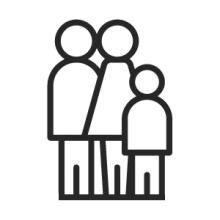A personal budget is the amount of money identified by the local authority to deliver provision.
If you have a child with a special educational need or disability (SEND), your child may be entitled to a personal budget through their Education, Health and Care (EHC) plan.
A personal budget can be requested once the council agrees to issue an EHC plan following an EHC needs assessment. It can also be requested during an EHC plan annual review. A young person may also request a personal budget.
For example, your child may receive a special educational need personal budget to:
- allow you to arrange for your own speech and language therapy as detailed in section F of your child's EHC plan
- purchase a specialist communication aid
The personal budget set out in your child's EHC plan can be provided for all or some of the special education, health and care provision. However, there are different criteria for each element.
